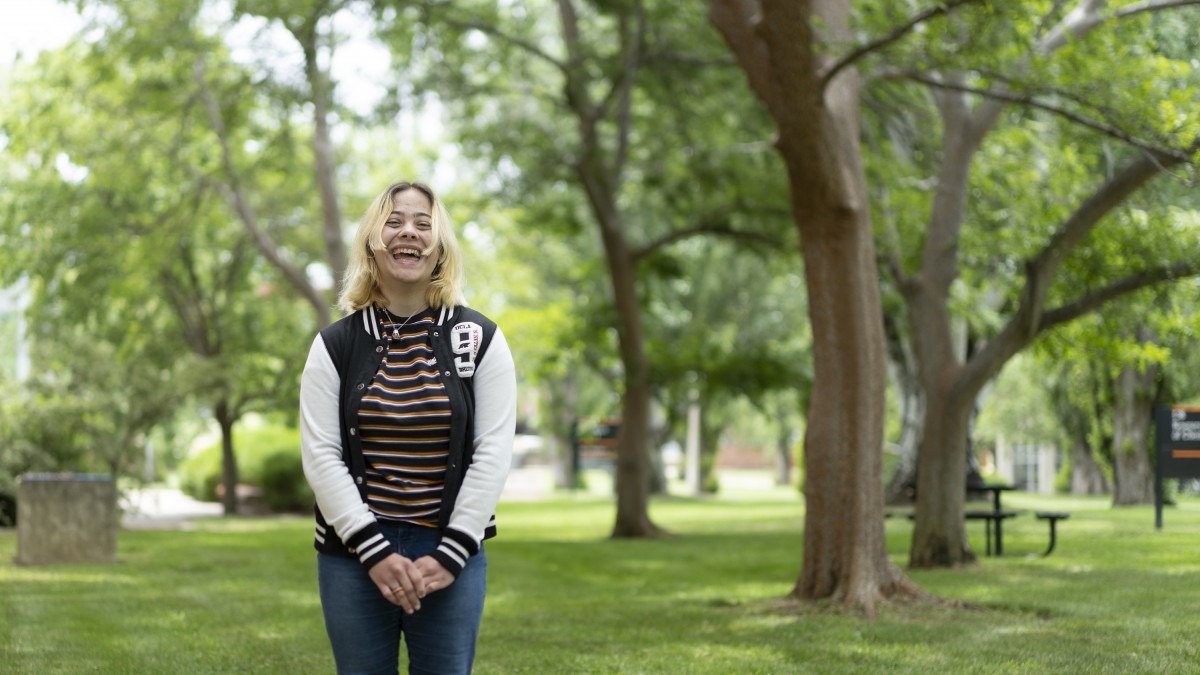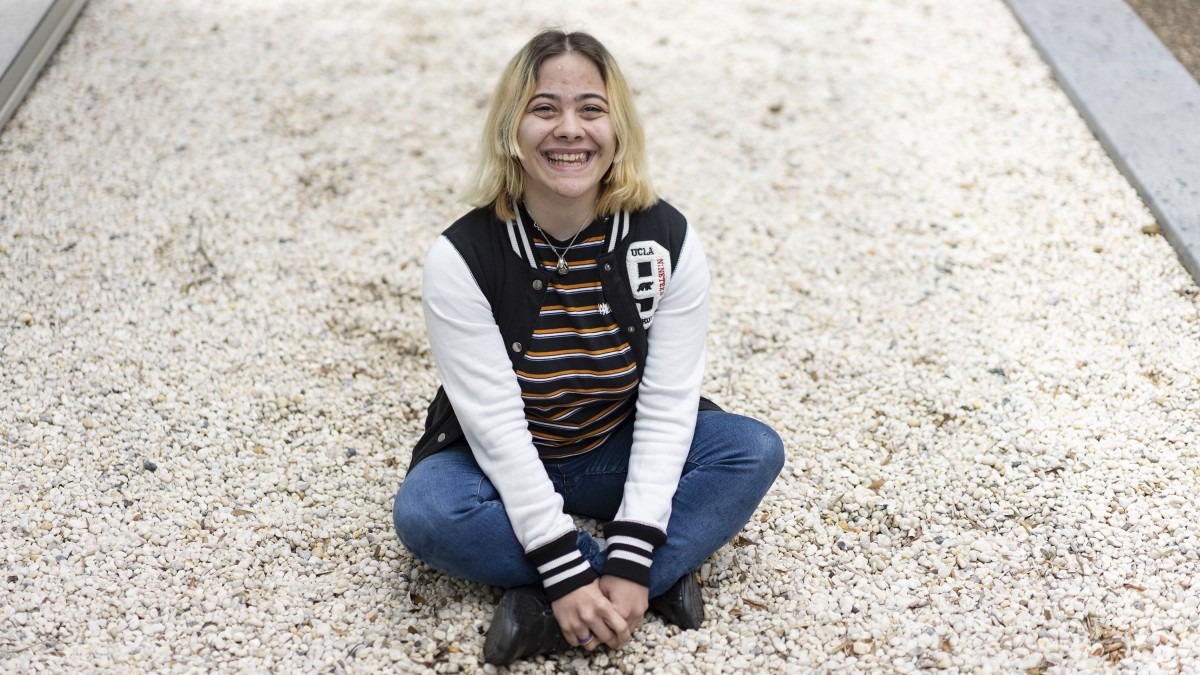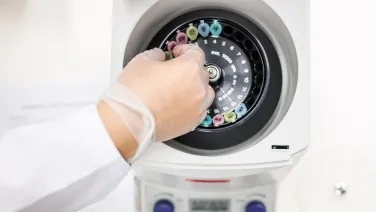The science of genetics is written into Amber’s story
Amber Condell likes stories - both hearing them and telling them. That’s why she likes studying genetics.
In Amber’s own story, genetics is right there in the beginning.
“When I was born, I was diagnosed with Ehlers-Danlos Syndrome,” she says. “Growing up with a genetic condition, and learning to manage it, means genetics has always been a really big part of my life, from the earliest starting point I can remember.
“It’s a heritable disorder, so my dad also has it, my sister has it, my mum does not. From a young age, that always really interested me, how patterns of inheritance work.”
Where most people might learn about the science of genetics from a textbook, for Amber, it’s never been separable from her lived experience of it.
“Ehlers-Danlos Syndrome involves a lot of skin fragility, and dislocations, and really easy bruising. So growing up, especially in my teenage years, I was frustrated about watching everyone else around me go to school camps and participate in sport activities, while I was stuck. I couldn’t put my health at risk to do a massive hike, for example, and dislocate something.
“While this was happening emotionally, I got really interested in the genetic side of things from a molecular perspective: how genes work, how genes encode proteins, how that impacts people.”
The turning point in Amber’s story came, she says, when her family attended an Ehlers-Danlos Syndrome convention, where the psychosocial and the scientific perspectives on genetics coalesced for her.
“There were a lot of scientists there and I got to sit in on some talks. I was an emo sort of teenager at the time, hopping into this little room full of scientists.
“I was just super excited to hear them speak about genes, and upcoming research, and what kind of treatments they had, and also support networks and that kind of stuff. It just fascinated me a lot.
“I also got to meet other kids like me, who had similar experiences, but at varying levels. In terms of genetics, it's a very heterogeneous disorder, so you can have some people who have the same condition but a different mutation, or are a lot more severely affected than others.
“Just being in that room and meeting so many people, it reinforced that it's okay to be who you are, to own it and be proud no matter how frustrating it gets.
“That really hooked me on the emotional side of genetics. I just wanted to learn more about other conditions, other genes and how other people are affected by them.”
Amber moved from Melbourne to start a Bachelor of Genetics at ANU three years ago. ANU is one of the only universities with a specific genetics undergraduate program, and Amber says that when she saw there was also the opportunity to do an internship in genetic counselling at Canberra Hospital, that sealed the deal.
Now she’s completed the degree, and the internship.
“To come full circle is really exciting,” she says.
“The internship was one of the greatest weeks of my life. It was an amazing experience. You've studied all this theory in class and gotten caught up in the technical lab work, and now it's time to go to meetings with patients and see that this is someone's real life. These are their real genes and emotions.
“It really did solidify that it's something I'd love to do. It was a window into the future.”
Now ready to graduate, Amber is returning to her family in Melbourne to continue her studies and move towards that future.
“I've just had the most wonderful three years at ANU. Ever. It's been—gosh, I'm going to get emotional—it's just been an amazing adventure. I really couldn't have asked for a better university experience, especially the people I've met, and the stories I've heard.
“I just love to hear people’s stories. We all have our own story.”




